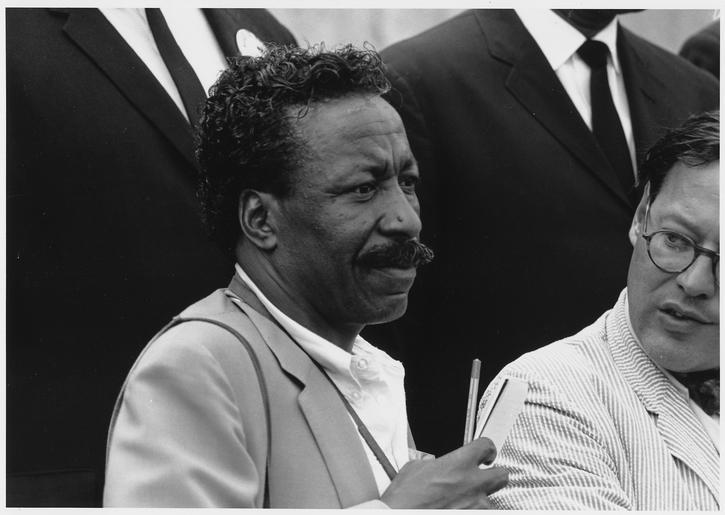Gordon Parks: The First African American Photographer
Gordon Parks, born with an eye for the world and its indifferences, worked beyond poverty and became the first African American Photographer to create work for the Life Magazine.
Gordon Parks within the Civil Rights March on Washington, D.C., in August 1963.
February 26, 2021
The sight of images of migrant workers in a print magazine caught the interest of young Gordon Parks. It interested him so much that Parks bought his own camera from a local pawnshop. Despite his family and community suffering from poverty and segregation, Parks started from rock bottom and taught himself how to photograph various issues such as civil rights, urban life, discrimination, poverty, and more.
Park’s talent in photography caught the eye of Marva Louis, wife of boxer Joe Louis, who encouraged Parks to move to Chicago where he began his own portrait business.
From nothing to something, Parks won the 1942 Julius Rosenwald Fellowship. This award led Parks to a position as a photographer for the Farm Security Administration in Washington, D.C.
The FSA was unfortunately shut down in 1943, Parks soon became a Freelance Photographer and worked his way to succeed as a staff photographer and writer for Life Magazine, making Parks the first high-profile black photographer in America at the time.
Parks contributed twenty years to Life Magazine and became well known for photo essays including his first, “Harlem Gang Leader”. Parks also got the opportunity to photograph prominent black public figures such as Muhammad Ali, Malcolm X, Stokely Carmichael, and Adam Clayton Powell Junior.
Although Parks was initially well known for his photographic eye, Parks also composed music, directed Hollywood films, and wrote novels. Parks was yet again the first African American man to direct, score, and write a Hollywood film titled The Learning Tree, which was based on a novel that he wrote.
Parks also composed and directed the ballet Martin, which was based on Martin Luther King Jr. Way before Parks learned to read or write, he composed piano music through the sense of hearing and pure passion.
Parks received many awards for his work throughout his lifetime. Due to complications with prostate cancer and high blood pressure, Parks died on March 7, 2006.
“Nothing came easy. I was just born with a need to explore every part of my mind. And with long searching and hard work, I became devoted to my restlessness,” Gordon Parks.




